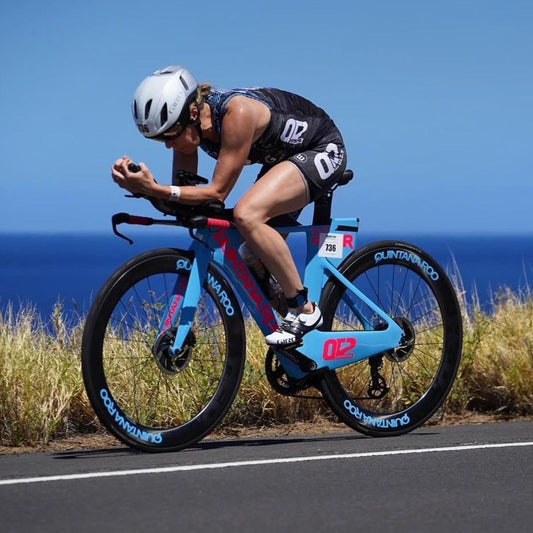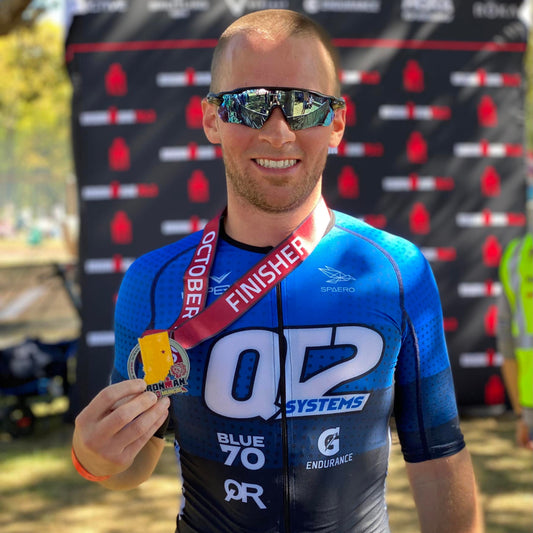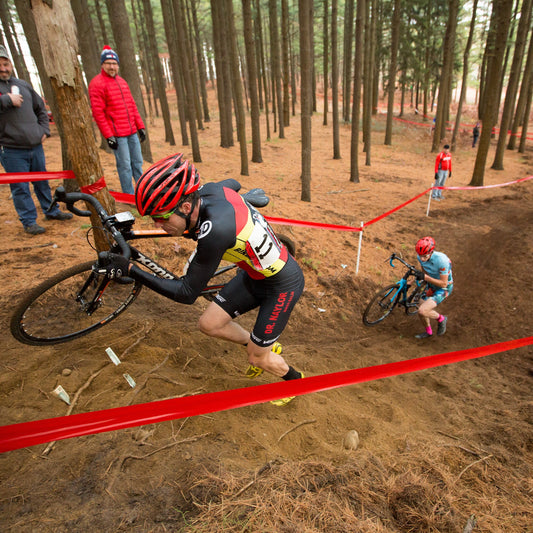Introduction: Why Do Some “Easy” Runs Feel So Hard?
We’ve all been there—heading out for what’s supposed to be a relaxed, easy run, only to find ourselves struggling way more than expected. Your legs feel heavy, your breathing feels harder than usual, and instead of finishing refreshed, you end up wiped out.
So what’s going on? Shouldn’t an easy run actually feel… easy?
In this article, we’ll dive into the science behind why your easy runs sometimes feel harder than they should. We’ll explore the physiological reasons behind this phenomenon, and most importantly, what you can do to fix it so your training stays on track.
1. The #1 Culprit: Running Too Fast
The Science of "Zone 2" Training <-- We call it "Z1"
One of the most common reasons an easy run feels hard is simply because you’re running too fast.
Easy runs should be performed in "Zone 2", which corresponds to:
- Below 85% of your Critical Speed
- Below 86% of your threshold heart rate
- Conversational pace (you should be able to hold a full conversation without gasping for air)
- 3-4/10 on the Rate of Perceived Exertion (RPE) scale
"Zone 2" running is critical because it:
✅ Builds your aerobic base (mitochondrial efficiency and fat metabolism)
✅ Allows proper recovery between hard sessions
✅ Reduces injury risk
When you start creeping above this intensity, even slightly, your body shifts from primarily burning fat to relying more on glycogen. This makes your run feel less sustainable, causing an increase in perceived effort over time.
💡 The Fix: Use a heart rate monitor or the talk test to ensure your easy runs stay truly easy. If you can’t comfortably chat while running, slow down.
2. Dehydration: The Silent Performance Killer
How Dehydration Affects Perceived Effort
Even mild dehydration (losing just 2% of your body weight in sweat) can:
- Increase heart rate
- Reduce blood volume (making it harder for oxygen to reach your muscles)
- Slow down cooling mechanisms (leading to higher core temperature)
All of these factors make your run feel far harder than it should.
How to Know If Dehydration Is the Problem:
- You feel thirsty before your run even starts
- Your heart rate is higher than normal at the same pace
- Your sweat rate seems excessively high or low
💡 The Fix:
- Hydrate consistently throughout the day, not just before your run.
- For longer runs, sip on electrolytes and not just plain water (to maintain sodium balance).
- Weigh yourself before and after a run—if you lose more than 2% of your body weight, you’re likely not drinking enough.
3. Under-Fueling: The Glycogen Problem
Why Low Carbs = Harder Runs
Your body relies on two primary fuel sources during running:
1️⃣ Fat (used in lower-intensity efforts like Zone 2)
2️⃣ Carbohydrates (Glycogen) (used when intensity increases)
If you haven’t eaten enough carbs before your run, your glycogen stores may be too low, making even a slow pace feel like a struggle.
Signs You’re Under-Fueled:
🚨 You feel low energy right from the start
🚨 Your legs feel heavy or dead
🚨 You feel lightheaded or weak halfway through
💡 The Fix:
- If running in the morning, eat a small carb-based snack (banana, toast with honey) before heading out.
- For runs longer than 60 minutes, take in mid-run fuel (gels, sports drinks) to maintain glycogen levels.
- Make sure your overall daily carb intake is adequate to support your training load.
4. Cumulative Fatigue: Are You Fully Recovered?
The Role of Recovery in Training Adaptation
Your body doesn’t improve during training—it improves during recovery. If your easy runs feel consistently hard, it could be because you’re not recovering properly between workouts.
Signs of poor recovery include:
- Elevated morning heart rate
- Lingering muscle soreness
- Poor sleep quality
- Decreased motivation to train
💡 The Fix:
✅ Prioritize sleep (7-9 hours per night)
✅ Space out intense sessions to allow full recovery
✅ Incorporate active recovery like walking or cycling
✅ Use HRV tracking (if available) to monitor stress and recovery levels
5. Environmental Factors: Heat, Humidity & Elevation
How Your Environment Affects Running Effort
- Running in high heat & humidity raises core body temperature, making your heart work harder.
- Elevation reduces oxygen availability, which can make even slow running feel harder.
- Wind resistance increases energy demand (especially headwinds).
💡 The Fix:
✅ If it’s hot, run earlier or later in the day and hydrate more.
✅ If at elevation, allow 2-3 weeks for acclimatization.
✅ If running into strong wind, adjust expectations and effort accordingly.
6. Psychological Factors: Is Your Mind Tired?
The Role of Mental Fatigue in Perceived Effort
Your brain plays a huge role in how hard a run feels. If you’re stressed, overworked, or mentally drained, your perceived effort goes up even if the physical demands haven’t changed.
How to Know If Mental Fatigue Is Affecting You:
- You dread starting your run, even if it’s “easy”
- Your RPE (Rate of Perceived Exertion) feels higher than usual
- You’re constantly distracted or lacking focus
💡 The Fix:
✅ Take mental breaks from training (schedule “fun runs” with no pace goals)
✅ Practice mindfulness before runs (deep breathing, visualization)
✅ Listen to music or podcasts to make runs more engaging
Final Takeaways: How to Make Easy Runs Feel Easy Again
If your easy runs feel hard, the issue is often one of these six factors:
| Factor | How It Affects You | How to Fix It |
|---|---|---|
| Running too fast | Causes excessive fatigue | Use Zone 2 pace, heart rate monitor |
| Dehydration | Increases HR, lowers blood volume | Hydrate before & during |
| Under-fueling | Low glycogen = sluggish legs | Eat carbs before & during |
| Lack of recovery | Fatigue builds up over time | Prioritize sleep & rest days |
| Environmental conditions | Heat, humidity, elevation add stress | Adjust pace & expectations |
| Mental fatigue | Makes effort feel harder | Take breaks, focus on enjoyment |
✅ Slow down. Hydrate. Fuel up. Recover well. Adjust to conditions. Keep your mindset fresh.
🔬 Want to train smarter with expert guidance? Our QT2 1-1 coaching takes out the guesswork so you can train effectively without burning out.
📌 Learn more about personalized coaching here: Get Coaching
🚀 See you on the road!






